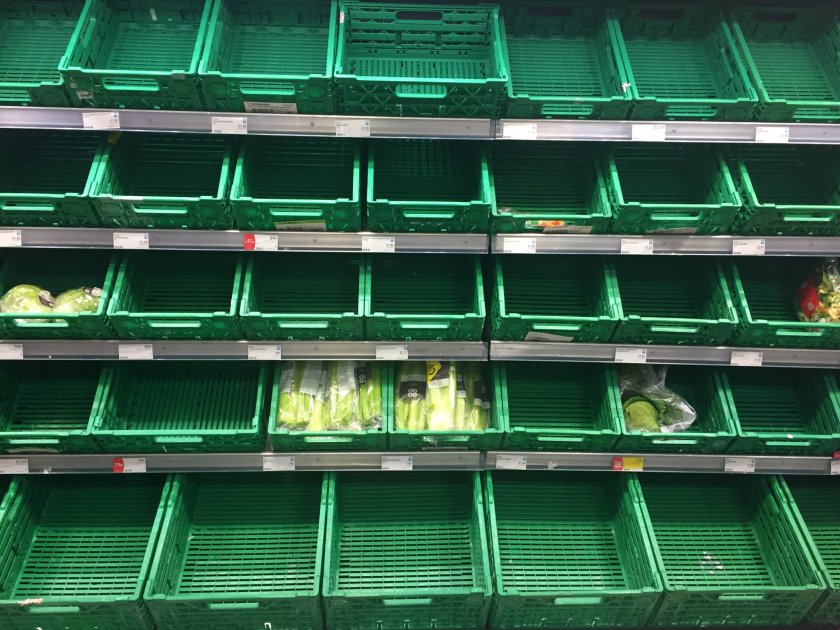
The UK's largest retailers have imposed national purchasing restrictions on fruit and vegetables due to extreme weather hitting harvests abroad, as well as high energy prices.
Asda, Morrisons, Aldi and Tesco have placed purchasing limits on items such as tomatoes, peppers and cucumbers.
Defra Secretary Therese Coffey has told parliament that she anticipates the situation will last another two to four weeks.
Responding to an urgent question in the House of Commons, she said: "It is important that we try and make sure that we get alternative sourcing options."
The British Retail Consortium has also said the shortages are expected to last "a few weeks" until the UK growing season gets under way.
According to the government, the shortages are mainly due to extreme weather in Spain and north Africa, which has impacted harvests.
But the impact of high energy prices hitting glass house production in the Netherlands and elsewhere, as well as ongoing labour issues, have also been blamed.
The NFU's deputy president, Tom Bradshaw said the UK needed to 'take command' of its own food production amid global 'volatility'.
Speaking to Times Radio, he said: "As we reposition ourselves in the world, we've left a trading bloc in the EU where we had very good trading relationships, we've had to go further afield.
"We see geopolitics, and the war in Ukraine being a tragic example, having huge impacts and I don't think that unrest is likely to go away in the near future; we seem to live in a very volatile world.
"We've then got climate change, compounding all of those issues. What we saw last summer with 40C heat is climate change in action.
"And we have 70 million people living on an island and we have to take responsibility for how we're going to feed those 70 million people."
Westlands Farm, a family-run business near Southampton, said the shortages were a result of supermarkets "unfairly blocking" their suppliers from passing on inflationary costs.
“The supermarket chains can do this because of their unfair market share and many of their suppliers have nowhere else to sell," said Westlands Farm Shop director, Graham Collett said.
"It is interesting that EU stores are full because they allowed prices to reflect increased costs and enabled their suppliers to stay in business.”
Professor Michael Winter, an agricultural expert at the University of Exeter, added that the shortages were a result of under-investment in UK horticulture "over many decades."
“Given the need for greater consumption of fruit and salad crops to ensure healthy diets, the current shortage is not good news," he warned.
“We have become used to depending on overseas imports but facing the global challenges of climate change and energy, it is now time to incentivise local horticultural production for local markets."
